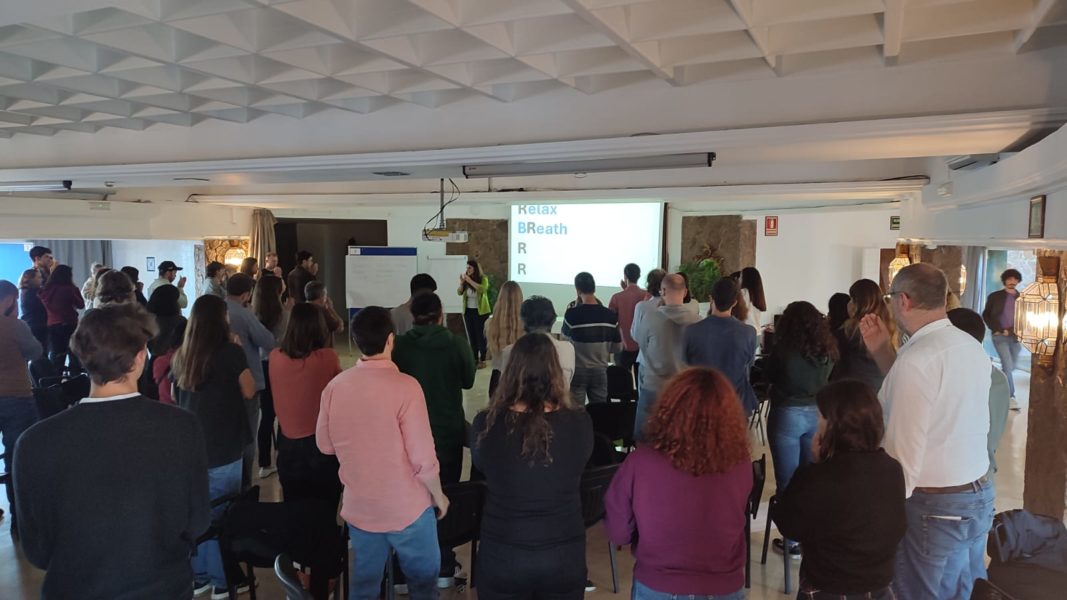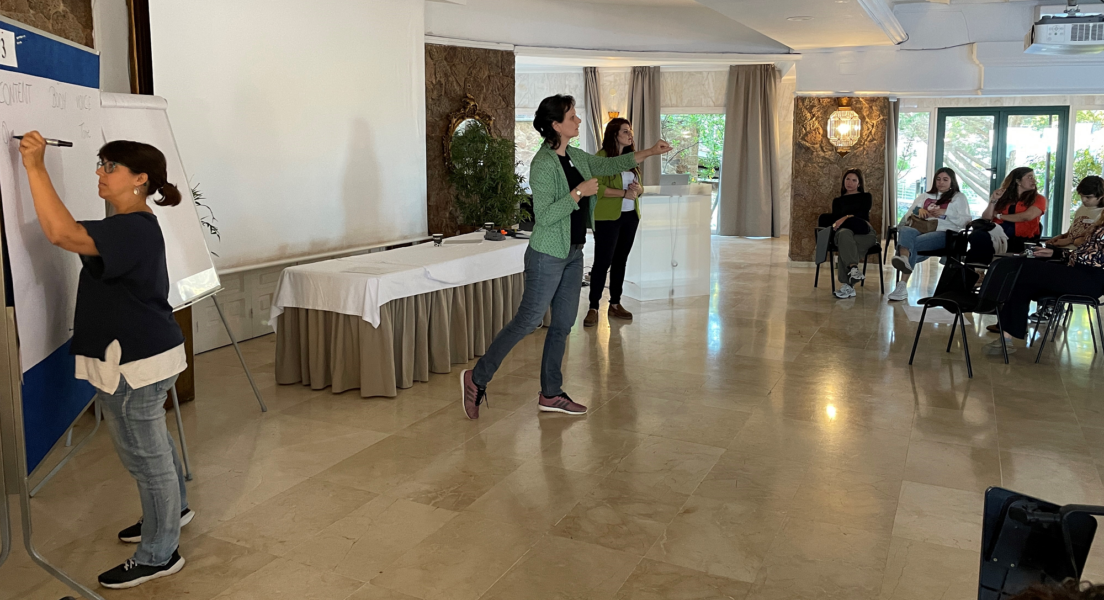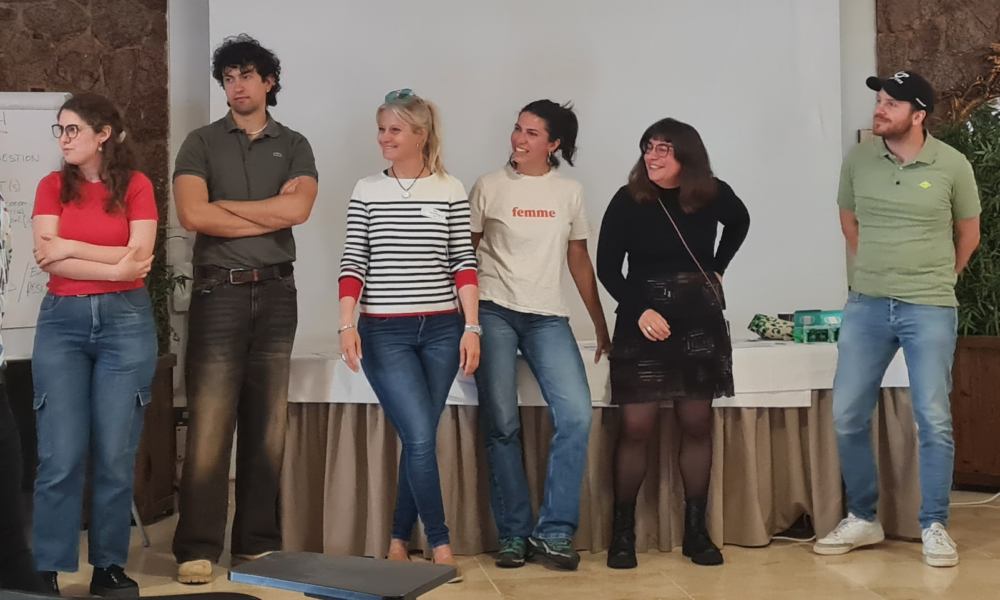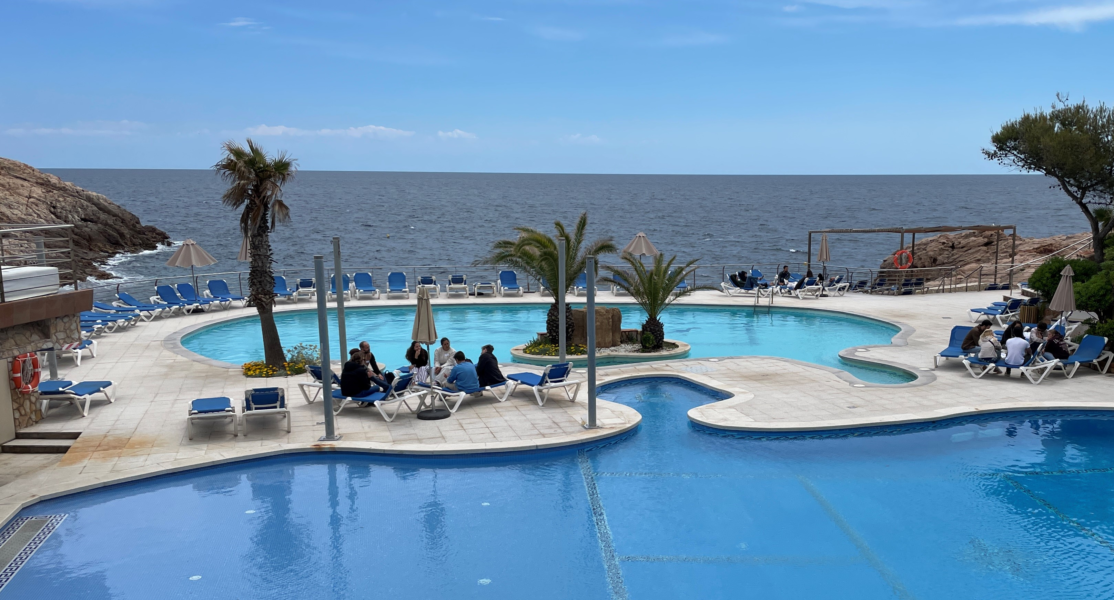The PRBB computational genomics seminars are nearly as old as the Barcelona Biomedical Research Park (PRBB) building itself. This series of seminars was born in 2006 from a single group – led by Roderic Guigó, who had triple affiliation to the then IMIM (currently named Hospital del Mar Research Institute), the Centre for Genomic Regulation (CRG) and the Department of Medicine and Life Sciences (MELIS-UPF), three of the centres at the park. And it has been growing non-stop since then, with researchers at the different centres at the Park interested in computational genomics joining in. “The first year my group met at Port del Compte. The year later we had another group joining (Eduardo Eyras) and the following one there were a few more groups from other centres, such as those led by Nuria López-Bigas and Xavier Estivill”, remembers Guigó.
All those groups – except Guigó’s – have now left the PRBB. But the computational genomics community is alive and well. What started with 9 people is now over 100 strong. “It kicked off at a time when the discipline was growing, with the aim of making the potential of the field visible. And there’s still plenty of room for more people!”
“The aim of the seminars was making the potential of computational genomics visible”
Roderic Guigó, CRG
Currently, more than a dozen groups from the different centres at the Park work on computational genomics. And they all join the bi-weekly “PRBB computational genomics seminars”, organised by students and postdocs and where a member of one of the groups showcases their latest work.
… and an annual symposium to rule them all
From the beginning, this grass-roots initiative where half of the PRBB centres are involved, included an annual 2-day symposium. These symposia have been going on uninterrupted since 2006 – with the only exception of the Covid pandemic.
Roderic Guigó and Julia Ponomarenko, together with Romina Garrido, wrote a paper a while ago about the organisation of these scientific meetings. As they explain, these are different than the usual conferences in that participants generally know each other well, and maybe even are close or frequent collaborators. Therefore, their aim is not so much learning about everyone’s latest results but rather to explore potential cooperation among them.
The latest of these symposia took place last May 16th and 17th in Sant Feliu de Guíxols, on the Catalan coast, with Rut Carbonell, Silvia Perez, Julia Perera Bel, Mathys Grapotte and Joseph Bowness as the organising committee.

About 100 participants – coming from 15 research groups at CRG, IMIM, UPF and the Institute for Evolutionary Biology (IBE: CSIC-UPF) – joined together to work on innovative project proposals, a group exercise that aimed to boost future collaborations.
In groups of 6 or 7 people, from different labs and different career stages, they had to come up with a scientific proposal to solicit funds from an imaginary funding agency – i.e. the rest of the participants. They had 1’5h to think of a feasible and impactful research idea.
They then participated in a training activity, organised by the CRG Training and Academic Office, about “How to give effective scientific presentations”, so that participants were ready to pitch their proposal to the audience in the afternoon – in just three minutes, and without any help from slides or posters. Indeed, in the words of Gemma Antoja, one of the trainers, “Only 7% of our communication consists of the words we speak, and the vast majority (93%) is transmitted through the voice and non-verbal communication, such as body language for example”.

Voting by the audience revealed the final winners, excelling in novelty, originality, feasibility, and impact, as well as the best team based on presentation (clarity, engagement, interest). The winning projects were so inspiring that the participants were offered a slot for free at the CRG Biobusiness School, where they will be able to design a business plan and potentially turn the project into reality.
The winning creative proposal was by the WHeLa team, formed by Anna Paris i Tarriel, Xanthi-Lida Katopodi, Marta Espinosa Camarena, Robert Froemel, F Xabier D, Sílvia Carbonell-Sala.

“Inspired by the majestic sea creatures, whales, whose rate of cancer occurrence seems to be significantly delayed despite their large size, we plan to develop an immortalised whale cancer cell line (WHeLa) that will enable us to revolutionise the study of cancer”
Science and fun in equal parts
“Some of the participants were a bit skeptical at the beginning, and we thought they might just go to the spa or the swimming pool instead of staying for the proposals, but none of them did!”, says Ponomarenko.

Indeed, the event also included plenty of social and team building activities, as well as an invited talk by Harris Lewin (Chair of the Earth BioGenome Project, Distinguished Professor UC Davis and Member of the National Academy of Sciences, USA). He discussed whether AI will be an accelerator for the Earth BioGenome project and for comparative genomics in general.
All in all, this grass-roots, intercentre, PRBB-wide initiative has proved to be a great success, and a good example of the benefits of creating synergies within different centres at the Park.







